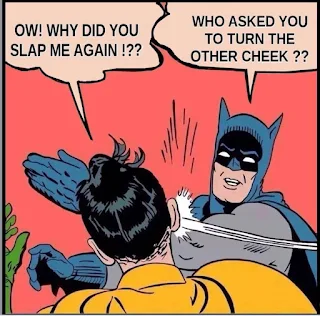Once Upon a Time in Anatolia
(Turkish, Bir Zamanlar Anadolu’da; 2011)
Director: Nuri Bilge Ceylan
Imagine standing out on a hill in the wild on a dark moonless night. You notice a row of moving lights. From its movement, you can guess that it is a moving train. You cannot imagine where it came from and where it is going. Soon you get a complete cacophony of sounds, the chugging of its engine, the bellowing of its high-pitched whistle that pierces the silence of the night and its belching of smoke. When it is nearer, you watch it intently, swerving and crawling. All your pleasant memories of your train travel flash right before you. As the train rapidly manifests, the stream of trains disappears behind the mountains equally swiftly right under your watch. You are left wondering what happened to the passengers, staff and the train itself. What baggage does each of them carry? What bitter-sweet experiences did each of them live to tell?
This one exciting movie defines what cinematography is all about. The creative use of light and darkness, long shorts and tight shorts and whatever it takes to give a memorable, long-lasting impression of the movie. Even a blurred view from a frosted glass appears so poetic.
The story is phenomenal. It is a simple story with no heroes. Everybody is a nobody with only one mission in their mind. Everybody is in a hurry to finish their work and return to their respective lives, which may not be hunky-dory. It is their responsibility to do what they have to do as how their fathers did in their jobs and family lives. Sometimes in their careers, they ask themselves what they are actually doing in their day to day, their actions and inactions in a rather philosophical way.
Three cars are seen moving in the cloak of darkness at the edge of a district in Anatolia. It is the wild country where might speaks louder than compassion and logic. Animals and even people fight to survive. Violence is expressed to prove a point. The cars carry some police personnel, a doctor, a prosecutor, a couple of general workers, an army man and a pair of brothers who confessed to a murder. The team is out there to retrieve the dead body.
The elder of the two brothers cannot pinpoint exactly where he dumped his victim as he was inebriated during the crime. They go on a wild goose chase, to which the overworked policemen put their frustrations on the convicts by giving them a good beating.
Slowly, the background of the characters comes to the fore.
The investigating police officer must juggle between his never-ending job and managing his chronically ill son.
The doctor is a divorcee after 2 years of marriage. Obviously, he still misses her. The reason for their break-up is not revealed. Though he is a pacifist, he is caught with the band of the rough company at work.
The only person who can keep all the men under control is the prosecutor. He uses his charm and experience dealing with criminals to rein them in. His intellect makes him able to converse with the doctor.
The prosecutor tells of a peculiar case where a lady predicted her exact date of death; five months after her delivery. It turns out to be his wife, we are told later. She was assumed to have had a heart attack, and that was it - an unprecedented unexplainable power to predict her own's death. When the doctor prodded further to suggest whether suicide was ever considered a possibility, the prosecutor laughed it off. Then it dawned upon him. The prosecutor was engaged in a short fling when his wife was pregnant. It was discovered by his wife, and the doctor proposed that she could have taken her own life after delivering at the same time punishing her husband. It all made sense to the prosecutor as digoxin was available in their household. Her father took digoxin for a heart ailment.
 The entourage stops for a rest at a local mayor's bungalow. Here, we are told that the mayor's biggest problem is not having a morgue to store dead bodies so that the deceased's family from overseas can visit before the burial. Talk about priority when frequent blackouts are not a big problem. How can maintain a mortuary without electricity?
The entourage stops for a rest at a local mayor's bungalow. Here, we are told that the mayor's biggest problem is not having a morgue to store dead bodies so that the deceased's family from overseas can visit before the burial. Talk about priority when frequent blackouts are not a big problem. How can maintain a mortuary without electricity?
In one scene, the mayor's angelic-looking daughter brings in tea. She mesmerises everyone with her beauty. The agitated men with only one thing on their minds suddenly swayed away. Are the storytellers suggesting that the presence of females is distracting men from their purposes in their lives?
The doctor faces a dilemma when the body is eventually found, and the postmortem is completed. The body was probably buried alive - earth was found in the trachea, not killed before concealing the body. If the cause of death was written as asphyxia, not a fractured skull, as was also found, it would just prolong the anger. The victim's son would avenge his father's death. The doctor thought we should bury the truth. Was he doing the right thing or doing a disservice? We are left to wonder?
The final take-home message must surely be this. We are the by-products of our father's actions. Subsequently, our progenies prosper or suffer because of our actions or inactions. Now, the question is, who is out there keeping count of our merits and demerit points and executing what is due to us?








.jpeg)








.jpeg)


.jpeg)



